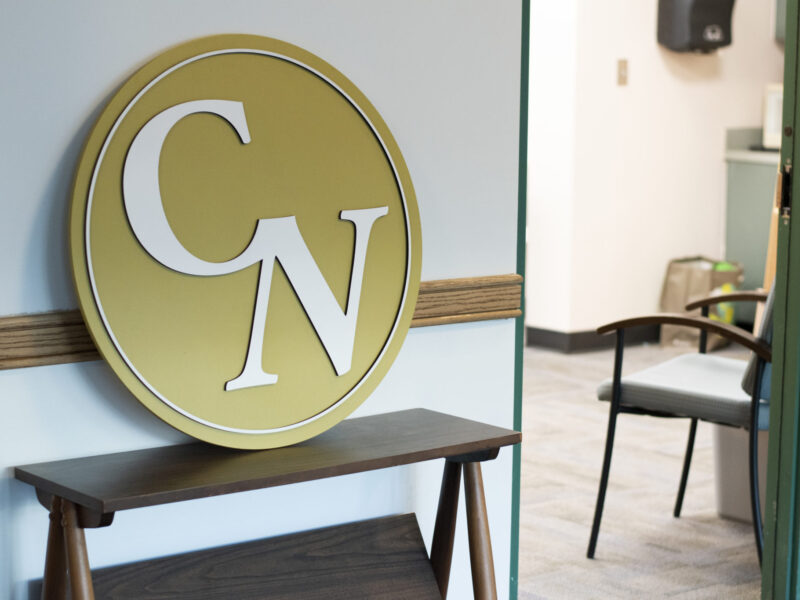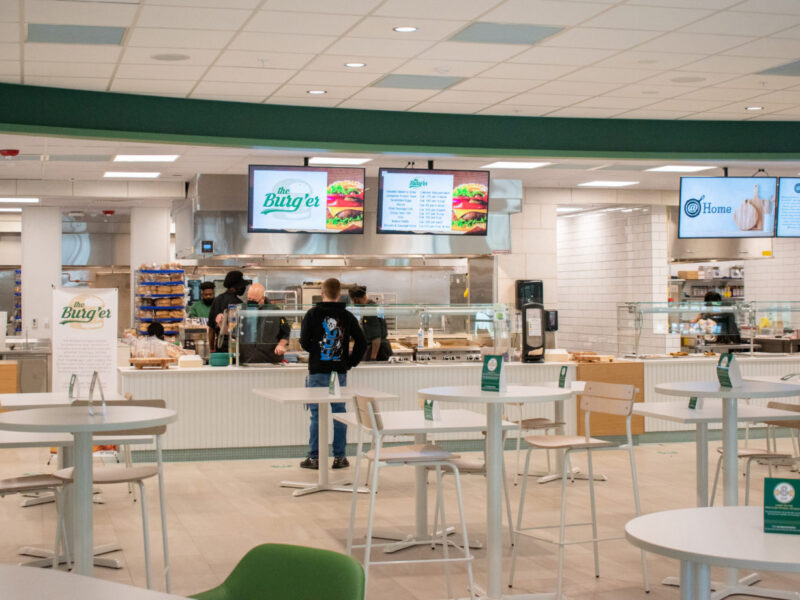By Timothy Fanning
Twice in his 13 years at USF St. Petersburg, V. Mark Durand has held key administrative posts as the university grew in size and stature.
Now the prominent professor fears the controversy surrounding the abrupt dismissal of Regional Chancellor Sophia Wisniewska on Sept. 18 may smudge USF St. Petersburg’s image and blunt its momentum.
Wisniewska was ousted by USF system President Judy Genshaft for the way she handled Hurricane Irma, including her decision to leave town – without telling Genshaft – once all students had left campus.
USF St. Petersburg has become the first choice for many high school seniors, freshmen and transfer students, said Durand, 63, a professor of psychology and author of several books. But Durand is worried that parents’ concerns about student safety may scare some people away.
“I am afraid that we will lose a little momentum because of (Wisniewska’s) connections with so many people in the community, who are now going to question how negatively this was portrayed,” he said. “It’s been on television, it’s been on national news, it’s been all over the place. I worry about the institution getting over that.”
Durand’s comments in a Crow’s Nest interview came as the campus worked to return to normal and Wisniewska’s temporary replacement, Interim Regional Chancellor Martin Tadlock, reminded faculty and staff of the “strong set of plans and priorities” that are firmly in place.
He also said the campus’ top administrators and emergency operations team have decided to reinforce USF St. Petersburg’s emergency preparedness by planning for more emergency staff and “coordinating more closely with (USF) system partners on communications.”
Meanwhile, there were tentative plans for Genshaft to come to St. Petersburg this week for meetings with faculty and staff and break her silence on the move that left the campus reeling in shock and dismay.
Tadlock and Debra Sinclair, president of the Faculty Senate, said Genshaft is tentatively scheduled to come on Friday afternoon to speak with students, faculty and staff.
Sinclair, a professor of accounting, said her group wants Genshaft to come to St. Petersburg to “tell us what happened and why.”
For days, senior faculty have groused, mostly in private, about the way Genshaft handled Wisniewska’s ouster, which caught the campus unaware and came with little public explanation.
The move reinforced the perception that Genshaft acts precipitously on key issues at USF St. Petersburg without consulting its administrators and senior faculty.
Although most professors who have spoken publicly are critical of Genshaft, the university system president found an ally in Deby Cassill, a professor of biology.
She expressed fondness for Wisnieswska but criticized her for leaving town as the hurricane approached, arguing that the campus leader should have stayed.
“It’s simple,” said Cassill. “The captain should go down with their ship.”
As president of the Faculty Senate, Sinclair leads a seven-member body (and several faculty committees) that is designed to be the main channel of communication between the faculty and administration of USF St. Petersburg.
Sinclair said she has “no idea why she (Genshaft) didn’t come the first week. I don’t want to speculate.”
“I feel like all I know is what’s in the paper, and that’s all I’ve been told as well. I feel like there is nothing I can do about it. I am disappointed,” she said.
Having Genshaft come to speak with faculty it would “make people feel more respected or that their opinion mattered,” Sinclair said.
Although Wisniewska’s abrupt departure was unsettling, Sinclair said, she thinks Tadlock will keep the campus on course.
“He knows the plan and he knows the people,” said Sinclair. “I don’t anticipate losing any momentum.”
But Durand is not so optimistic.
‘No one quite knows’
Durand was the founding dean of the College of Arts and Sciences in 2003-2004, and in 2015-2016 he served as acting vice chancellor of academic affairs while USF St. Petersburg recruited and hired Tadlock to replace Han Reichgelt, who was ousted in February 2015 for crudely propositioning a female professor.
Durand is widely known as an authority in the field of autism spectrum disorder. His books include two textbooks on abnormal psychology that have been used in more than a thousand universities around the world, according to a USF St. Petersburg website.
From 1993 to 2003 Durand was the founding director of the Center for Autism and Related Disabilities at University at Albany, SUNY, and in 2001-2002, he was the school’s interim dean for the College of Arts and Sciences.
When he arrived at USF St. Petersburg in 2004, there were no residence halls and the campus was just transitioning into a place that allowed faculty to make their own decisions. Before that, St. Petersburg faculty “had an allegiance” to departments in Tampa, Durand said, and many faculty members needed to be convinced that they could create their own curriculum.
“We had to change their outlook and tell them, ‘That’s not your department in Tampa, this is your department,’” Durand said. “So for the first time, it was teaching faculty how to get tenured promotions and how to make their own decisions. We were essentially creating a new university that was not just a branch of another university.”
The campus became more than just a commuter school, won separate accreditation in 2006 and gradually morphed into its own little community.
Gradually the focus turned to the students, he said. Students began to hang out on campus and all of a sudden students were having lunch.
“Students were having lunch here, they were all over the place. They were by the water, by the library,” Durand said. “There was a life here, and faculty eventually had a vested interested in keeping that campus community alive. One of the things we are always told now is that our faculty is always accessible, that we are here to just talk, for career advice, to write letters of recommendations.”
“We created our own USFSP that was more than just a pretty place to go to class,” he said.
Durand attributes a lot of the growth to Wisniewska, who he said built a team of talented vice chancellors and senior administrators. He said that the people she put in place really care about the campus and the students.
“You never know who your next boss is and what the relationship will be like. Sometimes a regional chancellor will want a whole new team or sees something that needs fixing. It’s an uncertain time,” Durand said.
“Martin Tadlock is interim chancellor now, and he will do a fine job, but it is not clear how long he will be interim. He said until June of next year, but there have been no active plans for a search committee, and that’s another uncertainty that no one quite knows.”
Delaney Brown contributed to this report.
Header photo courtesy of USFSP


